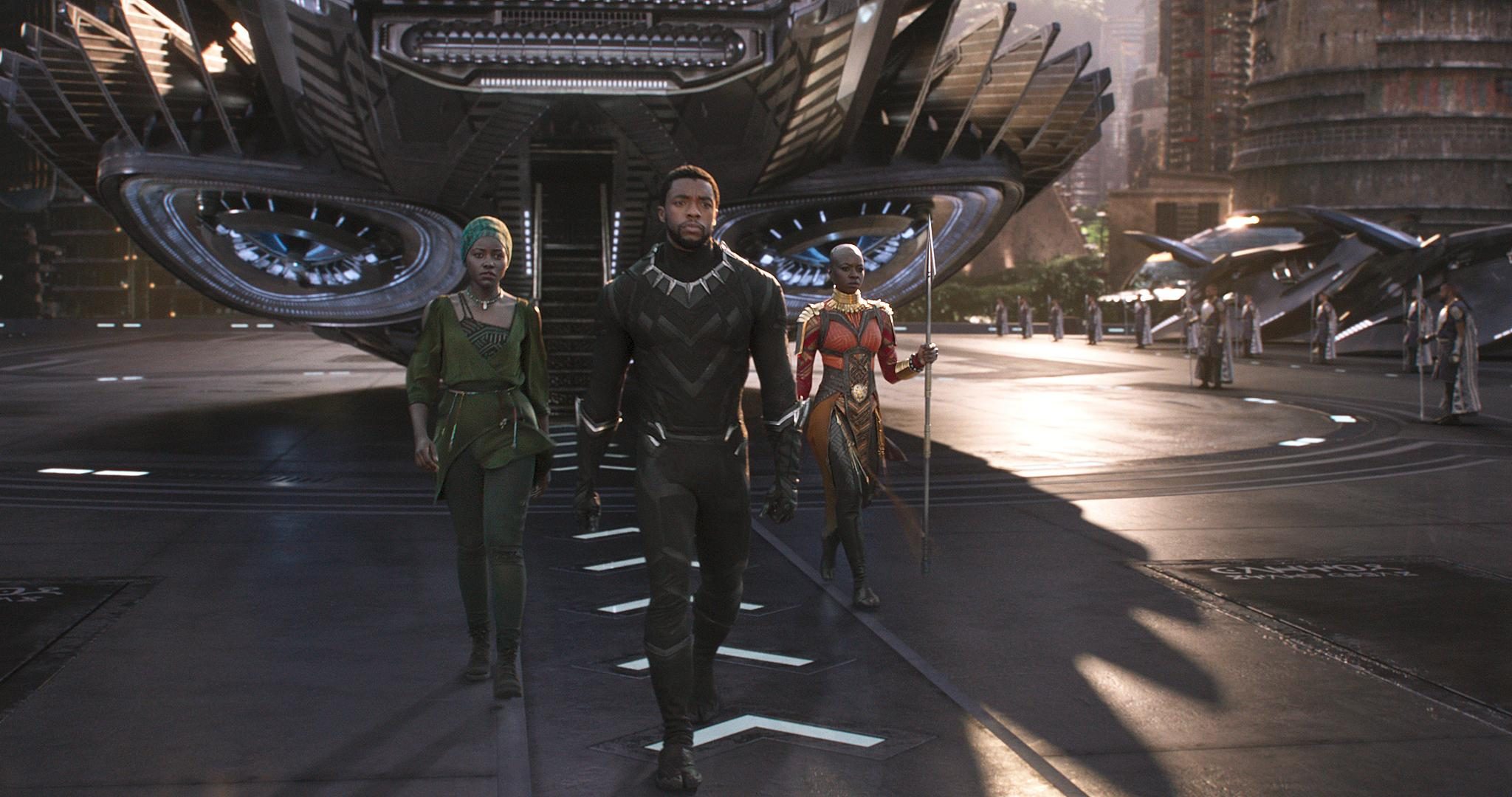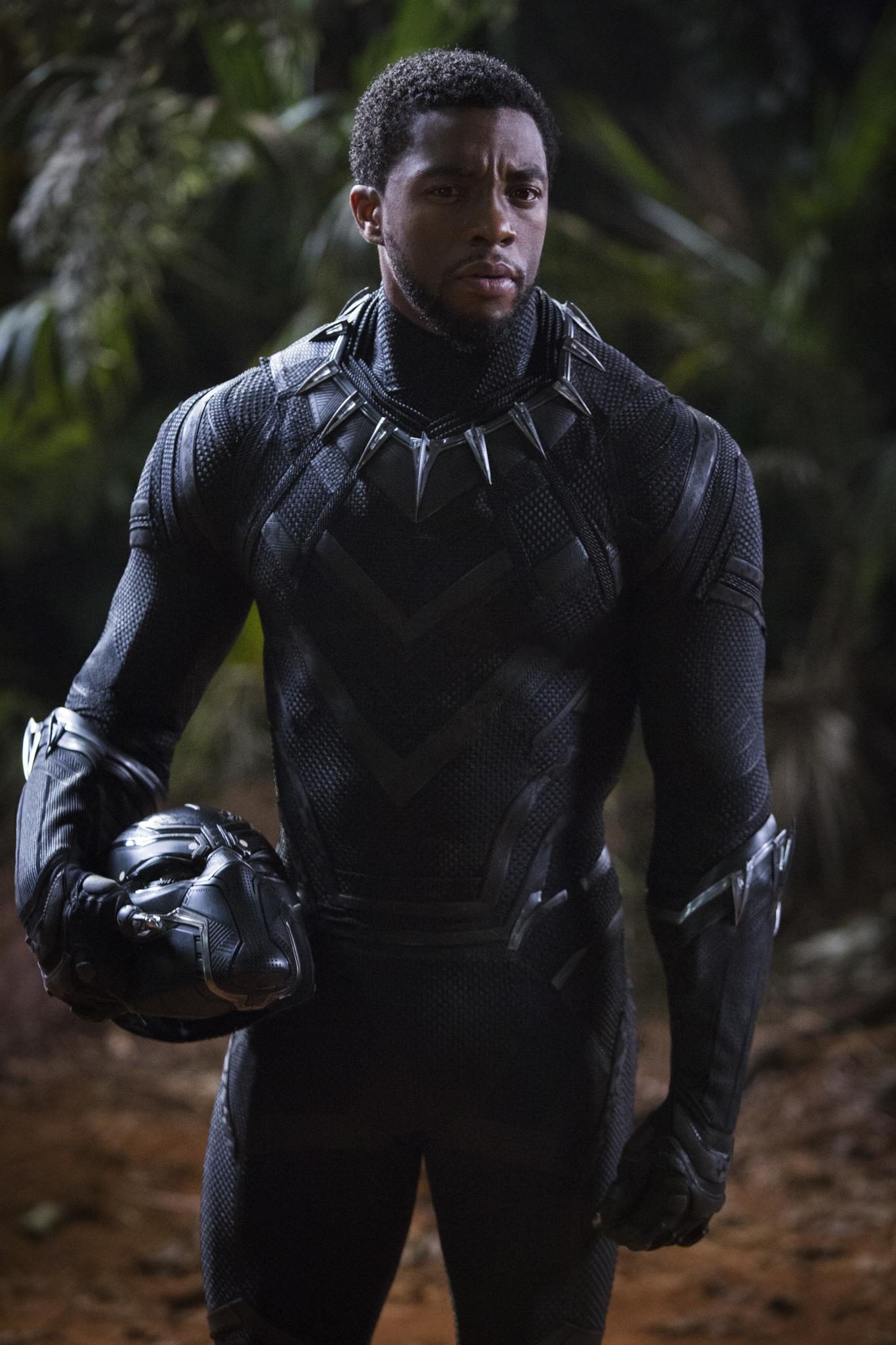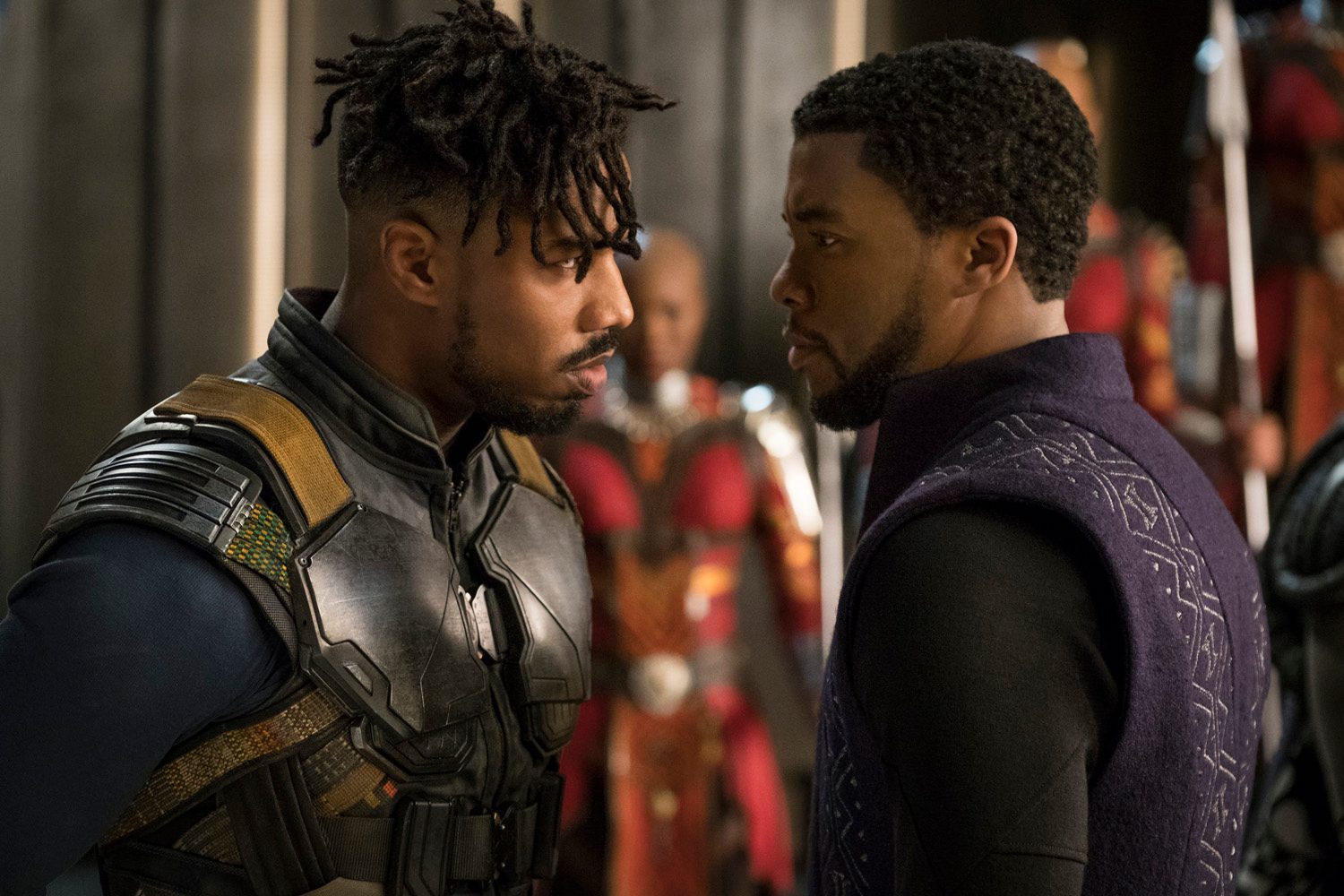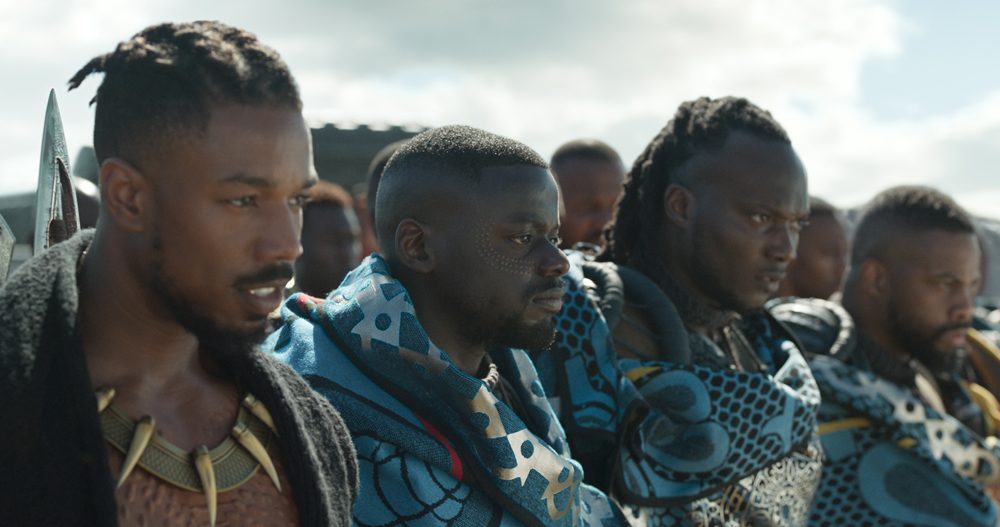SUMMARY
This is AI generated summarization, which may have errors. For context, always refer to the full article.

A rare animal in a sprawling jungle full of loud but fleeting blockbusters, Ryan Coogler’s Black Panther is shaped like the typical superhero movie bound to fit in the multi-film narrative of a lucrative franchise. However, its heart beats to a rhythm that resonates well beyond the film’s duty to entertain. The film has a sense of history, a palpable drive to connect the power of pop fiction to enunciate real world conflicts.
Shapes, sounds, and gestures
Black Panther opens with a short animated presentation of the history of Wakanda, a nation whose wealth and technological advancements are hidden to the rest of the world which thinks it is another backward society tucked deep in Africa. From a tall tale of meteorites laden with mythical vibranium and flowers whose essence gives its drinker superhuman strength, the film immediately jumps to Oakland, California, to an urban tenement that is commonplace in the historic American city that gave birth to the Black Panther Party. In the 60’s and 70’s, the party was in conflict with authorities because of its radical means to promote African-American rights.

What happens in one of the apartments in that Oakland tenement building sets into motion the political and moral turmoil that happens in Wakanda.
T’Challa (Chadwick Boseman), fresh from his adventures in Anthony and Joe Russo’s Captain America: Civil War (2016), comes back to his motherland to be crowned king. What is particularly amazing in Coogler’s film is that it takes its sweet time to carve culture, even if it is all fictional, out of what could have been just a spectacular setting. Wakanda, unlike Sokovia of Joss Whedon’s The Avengers: Age of Ultron (2015), feels like it was borne out of its fictional history, with rituals, customs, and a government system that are intertwined with its rich roots. The design is marvelous, with its shape, colors, sounds, and gestures all melding to celebrate an unblemished culture.

It can even be said that Wakanda is the Africa of an alternate universe where Western colonialism never happened. It is this notion that makes Black Panther so compelling. Throughout its fervent acknowledgment of all superhero movie tropes, it never lets go of the real world and its very real concerns. (READ: Why Chadwick Boseman pushed for an African accent in ‘Black Panther’)
Memories of struggles
The film would pit its fantastical and idealized elements with the stark repercussions of the history of a people whose continent was raped and ravaged, and whose descendants have been unwillingly flung all over the world to face injustices and intolerance.
Where Wakanda is a land where very little conflict happens, all around the world, wars, poverty, slavery, and other forms of conflict exist. Where T’Challa is the beloved heir of that land that has never met any strife, his rival to the throne, Erik Killmonger (Michael B. Jordan) is a man tainted by hate drawn from memories of struggles. Where T’Challa dreams of beautiful African plains where his father welcomes him with a smile, Erik dreams of his humble Oakland apartment where he has witnessed acts of violence.

Easily, Black Panther is much more loaded, much more profound than your ordinary Marvel movie.
Its villain is not simply diabolical.
Erik isn’t aiming solely for wanton destruction. He isn’t selfish, as he fashions himself as a political figure but with extremist methods. His motivations, while narratively grounded on a personal trauma, also hinges on an entire race’s collective memory of oppression. Jordan plays his character with evident conviction, turning him more into a tragic figure than a reprehensible foe. In fact, Erik seems to eclipse T’Challa in the film. Where the titular character’s internal turmoil never forces him to leave benevolence for greyer areas, Erik’s narrative is rife with challenges, forcing him to err in the most human way possible.
Marvel masterplan
Black Panther is a lot of fun, with colors incessantly bursting from start to finish. It is brimming with action, most of which are of the unsurprisingly far-fetched type with costumed people jumping from car to car while dodging bullets left and right. Definitely, this is still a superhero movie, down to the unnecessary cameos of Stan Lee and the end credit sequences that needlessly connect the plot to Marvel masterplan.

Coogler however blends much-needed imperative character and overt discourse to all the otherwise routine and colorless fun. Because of that, Black Panther stands proud as the best of the lot. – Rappler.com

Francis Joseph Cruz litigates for a living and writes about cinema for fun. The first Filipino movie he saw in the theaters was Carlo J. Caparas’ Tirad Pass. Since then, he’s been on a mission to find better memories with Philippine cinema.
Add a comment
How does this make you feel?
There are no comments yet. Add your comment to start the conversation.